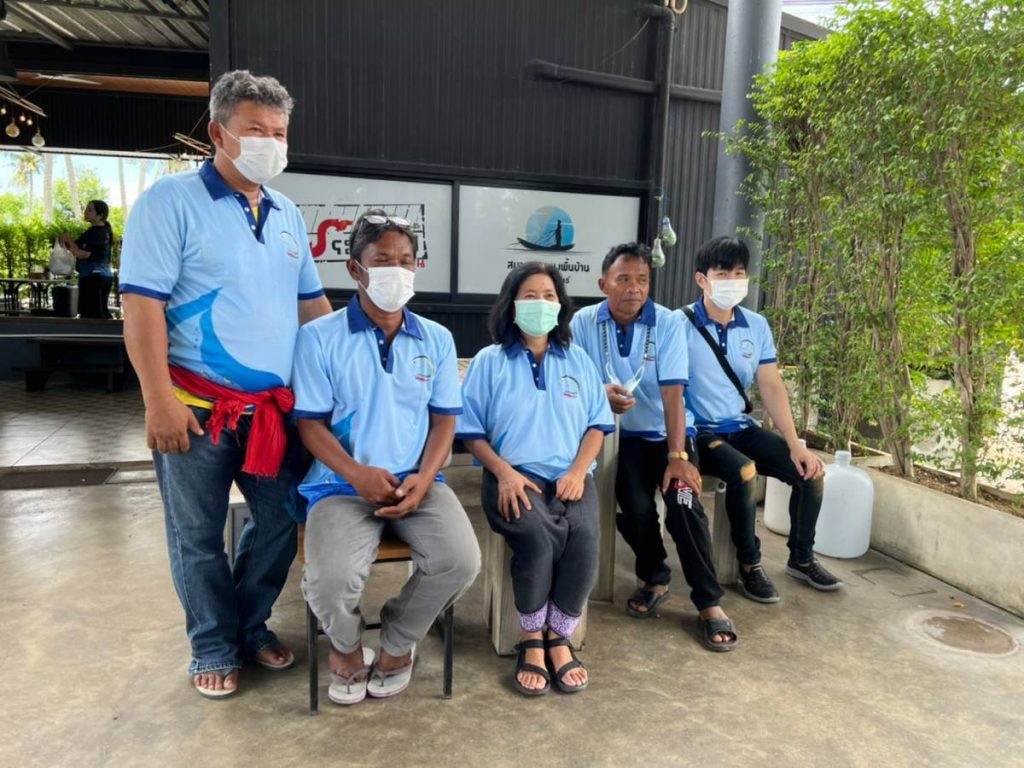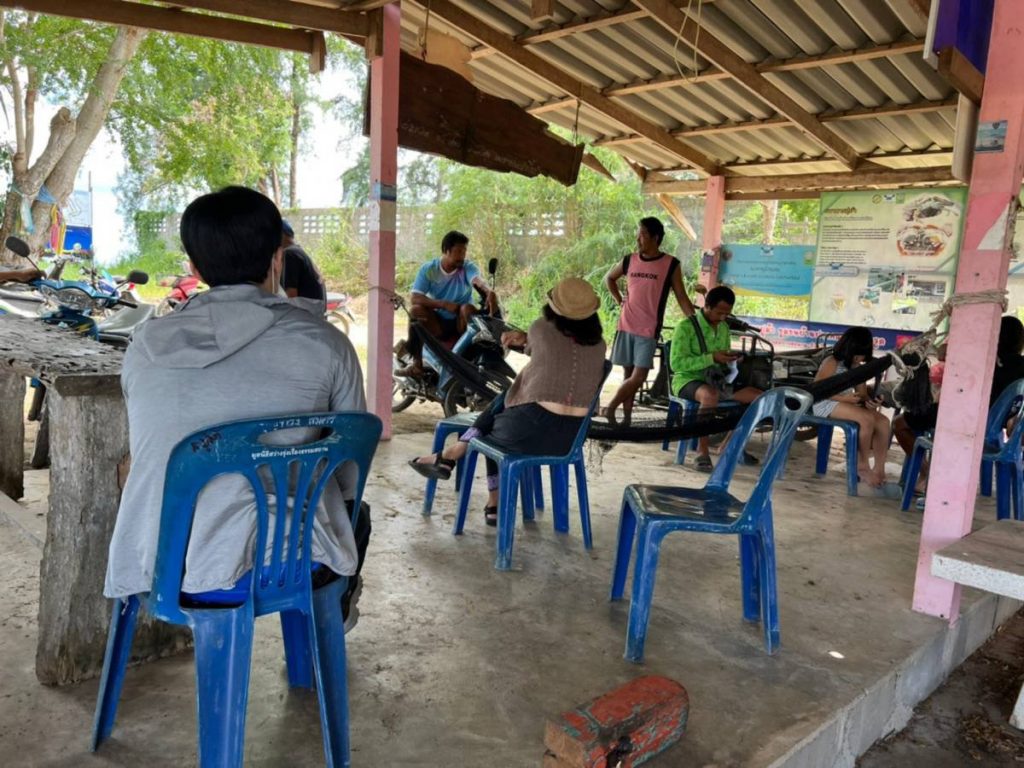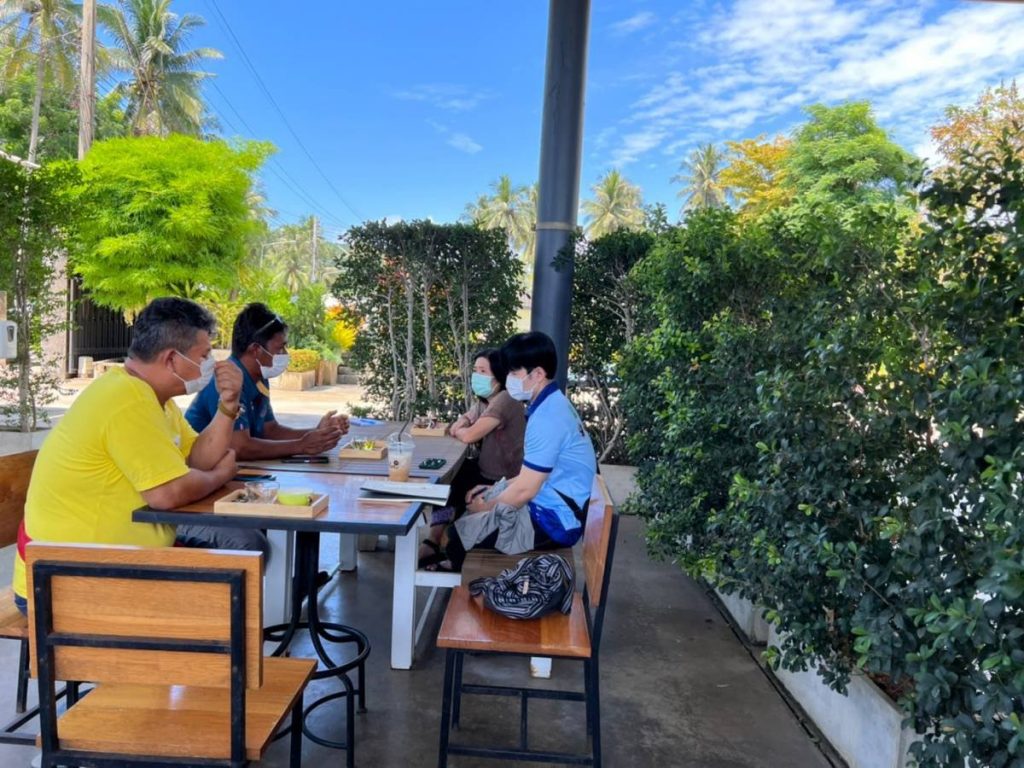Thai short mackerel, which used to be highly abundant in the Gulf of Thailand (“GoT”), was once acknowledged as a commercially important species as well as a common food in the Thai household. It was also a staple of the diet of nearly every Thai child, regardless of socioeconomic status. But it can’t be denied that the Thai short mackerel population is facing challenges, such as overfishing and a sharp drop in numbers. As a result, it is uncertain how much longer the Thai short mackerel can continue to be a food staple. Numerous policies, measures, and programmes have been developed over the years. Nonetheless, there are numerous debates regarding how these policies, measures, and programmes will promote food justice and sustainability.

igure 1 and 2 Meeting with the representatives of Bangsaphan’s Fisherfolk Association
As mentioned above, The Asian Research Center for Migration (“ARCM”) of Chulalongkorn University is collaborating with six organisations, including the Department of Fisheries, Kasetsart University, associations, civil service organisations, and fisherfolk groups, to conduct a study titled “Preservation and Promotion of Thailand’s Short Mackerel in its Value Chain: A Research and Innovation Project.” This project is supported by the Thailand National Research Council. This project comprises eight components. One of these focuses on fishermen in both the commercial and traditional fishing industries. We believe that changing attitudes and behaviours can promote sustainable fishing practises and food justice.

Figure 3 Meeting with fisherfolk group in Ban Krut
ARCM organised a trip to Ban Krut, located in Prachuap Khiri Khan, in order to gain a deeper understanding of the attitudes and behaviours of Thai short mackerel fishermen. This trip aimed to pre-survey targeted communities and meet with representatives of fisherfolk and commercial fishing groups.
It was a productive journey. The research team has a deeper comprehension of the perspectives, attitudes, and behaviour of the fishermen. This trip has taught us that the biggest threats to the Thai short mackerel are the development of new technologies and fishing gear, the increasing demand for short mackerel due to population growth, and the expansion of commercial and traditional fishing. In addition, the capture of juvenile Thai short mackerel has increased.
The research team received a number of recommendations on food justice and sustainable solutions for the Thai mackerel, such as the use of environmentally friendly fishing gear and the selection of specific catch sizes. The representative of the fisherfolk’s association proposed extending the nursing period for juvenile fish following the blockade during spawning season. He noted that this measure will greatly assist in boosting the Thai short mackerel population, and that it can be advantageous for both fishermen and commercial fishing. There is a need for research, product development, and marketing to increase more value for the Thai short mackerel. Enforcement of laws and regulations must be strengthened, and price guarantees were also addressed. To improve the fisherman’s standard of living, one of the recommendations is that the government should provide compensation during the blockage season. Ultimately, long-term strategies are required for the Thai short mackerel. These recommendations can facilitate in the formulation of policy recommendations as well as the design of programmes that promote the sustainability and food justice of the Thai short mackerel.

igure 1 and 2 Meeting with the representatives of Bangsaphan’s Fisherfolk Association

